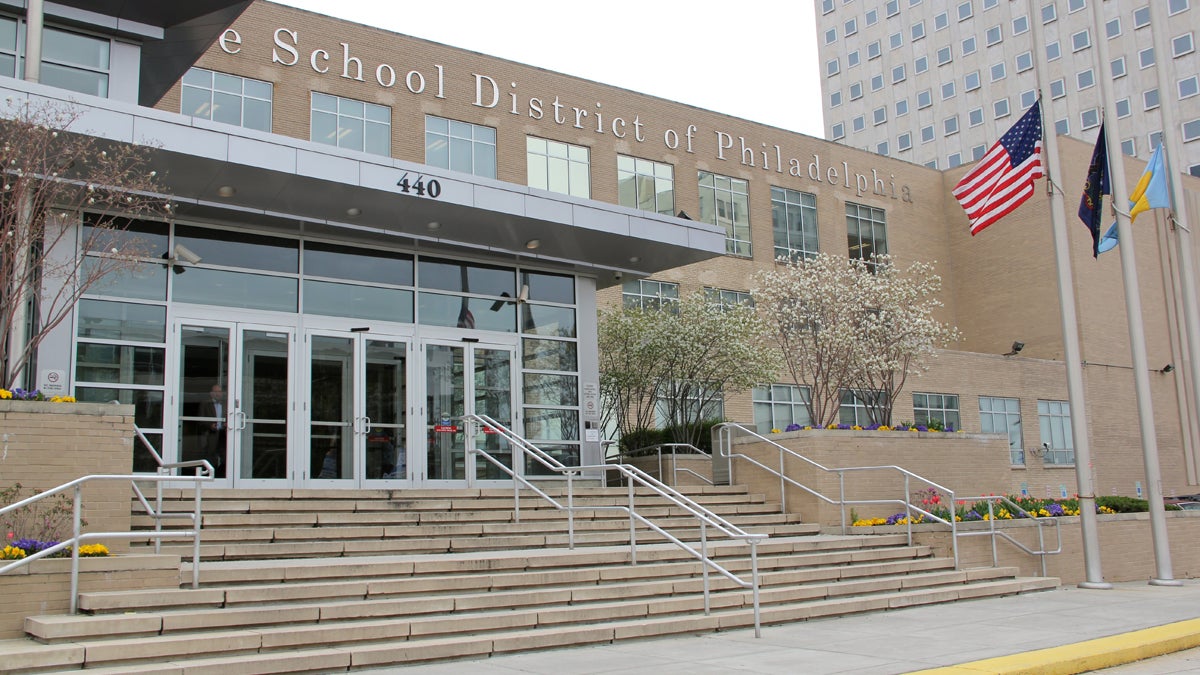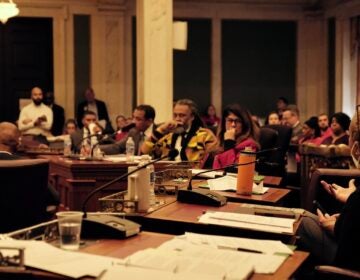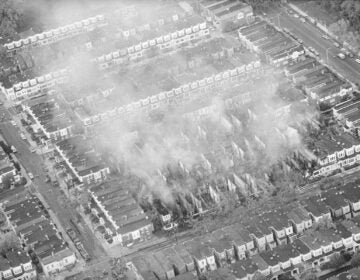Woes of Philly schools can’t be overstated, Hughes declares

(Emma Lee/WHYY)
It’s all been written before. The Philadelphia School District was in brutal financial shape last year.
Overfilled classrooms.
Guidance counselors and nurses nonexistent in schools on many days.
Cash available only for the barest of supplies and supports.
Still, “it needs to be discussed over and over and over again,” said Pennsylvania Sen. Vincent Hughes at a Thursday news conference. “This is not how you achieve a 21st century education.”
Flanked by a teacher, a parent, a student, a building maintenance worker and colleague state Sen. Larry Farnese, Hughes detailed the results of his 2013-2014 school district fact-finding study.
Lowlights of the document below include anecdotal reports of overwhelmed faculty, unsanitary schools, persistent HVAC problems, a second-grade classroom with more than 40 students, and high school coursework being “taught” by students.
Last week, the district announced that it would close its $81 million budget gap, in part, with additional cuts.
“The proposal that was laid out last week provides for fewer cleaning supplies, which means dirtier schools, provides for less security, provides for a loss of transportation, which amounts to a tax on children – because that’s what that is,” said Hughes. “The children have to buy their own transpasses, and they’re already deprived economically … is this really school?”
At a School Reform Commission meeting held hours after Hughes’ news conference, schools Superintendent William Hite announced that cuts to student transportation would be restored.
The teachers, parents, and education advocates joining Hughes say Philadelphia’s public school crisis could have been averted if Gov. Tom Corbett and the Republican-controlled state legislature passed new revenue-generating measures such as a higher tax on natural gas drilling.
“These children don’t have the opportunity to redo their academic school years,” said C.W. Henry School parent Robin Roberts. “What we’re doing is we’re failing them, the adults are failing them … and then we’re going to expect them to jump this incredibly high bar at the end when we test them to death.”
Roberts’ son Miles, an eighth-grader at C.W. Henry, told reporters that he’d like to one day become an aeronautical engineer.
“What am I supposed to do if I can’t get the resources that I need?” he said.
Hughes urged parents to document school deficiencies and submit complaints to the state Department of Education.
Last year, Parents United for Public Education worked with the Public Interest Law Center of Philadelphia to create a website to aggregate those complaints.
PILCOP’s Amy Laura Cahn said her organization submitted 825 complaints to the state last year, to little avail.
“The Pennsylvania Department of Education has declined to conduct any meaningful investigation, let alone take corrective action,” she said.
Based on the school district’s deficiencies, PILCOP says it is “moving toward” filing a lawsuit against the state.
Despite admitted deficiencies, schools will open on Sept. 8.
Hite is banking on legislative approval of the $2-per-pack Philadelphia cigarette tax in mid-September to avoid an even deeper set of cuts.
DV.load(“//www.documentcloud.org/documents/1278870-fact-finding-philly-public-schools-2013-14.js”, {
width: 600,
height: 600,
sidebar: false,
container: “#DV-viewer-1278870-fact-finding-philly-public-schools-2013-14”
});
WHYY is your source for fact-based, in-depth journalism and information. As a nonprofit organization, we rely on financial support from readers like you. Please give today.





